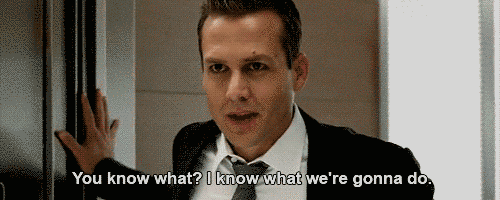Grace Shaw
One of the most plaguing questions I’ve seen frazzled essay-writers struggle with is “What does my professor want?”
It may seem logical to correlate high grades with catering to an instructor’s whims and personal biases (we all have them), but in my experience, this is not the case with any educator worth his or her snuff. Students, particularly in the arts disciplines need to abandon the quest for the “right” answer in favour of the best answer.
Good professors, contrary to what the title suggests, are not there to profess, but to guide, encourage, and inform. The rest is up to us. The temptation to avoid argumentative risk-taking can be motivated by a fear of poor grades, but playing it safe rarely (i.e. never) comes with an A+ guarantee. In fact, there is much more to be gained by wrestling with and challenging the status quo. Engaging directly with the material serves to educate the writer (which in itself seems to be adequate reason given the small fortunes we’ve all spent just to be here), as well as entertain the professor; he or she may find a devil’s advocate perspective refreshing.
Especially in the Arts, there is often no empirical right or wrong, and a lot of time and energy can be squandered searching for a truth that might not exist. In some cases, the topic is still up for debate among experts in the field. This lack of authoritative knowledge can seem unsettling at first, but it is an opportunity, a chance to consider new ideas, explore, research, learn. The objective of essay-writing is to develop a well-founded, well-supported argument, and to engage intelligently with the material. This can be achieved—along with a good grade—even if the writer is contradicting or questioning preconceived assumptions.
Essay-writing can at times seem like nothing but another hoop to jump through; a grade to earn to acquire a credit, to obtain a degree, to get a career. And sometimes, that’s exactly what it is. But that doesn’t mean you have to jump through the hoops without originality; do a backflip, make it count for something. Your mind is capable, ingenious, creative, phenomenal, and rife with exploitable potential. Challenge yourself; use it.
Image via






Thank you for this post, Grace. I wholeheartedly agree. As a part-time instructor, I worry when I overhear students say, “What do I have to do to get a good mark on this assignment?” It’s not necessarily a matter of just applying what’s been taught in class, or following a prescribed structure. Writing, as they say, is more like cooking than baking. You need the ingredients but whereas in baking they must be precisely measured and ordered, in cooking you have more flexibility to experiment, substitute, adjust and re-order. Education is yes, a matter of application sometimes, but it is more so a process of discovery. Everyone enjoys good marks, but becoming fixated on pleasing an instructor to receive them is not likely what’s going to help you earn them or satisfy your own curiosities.